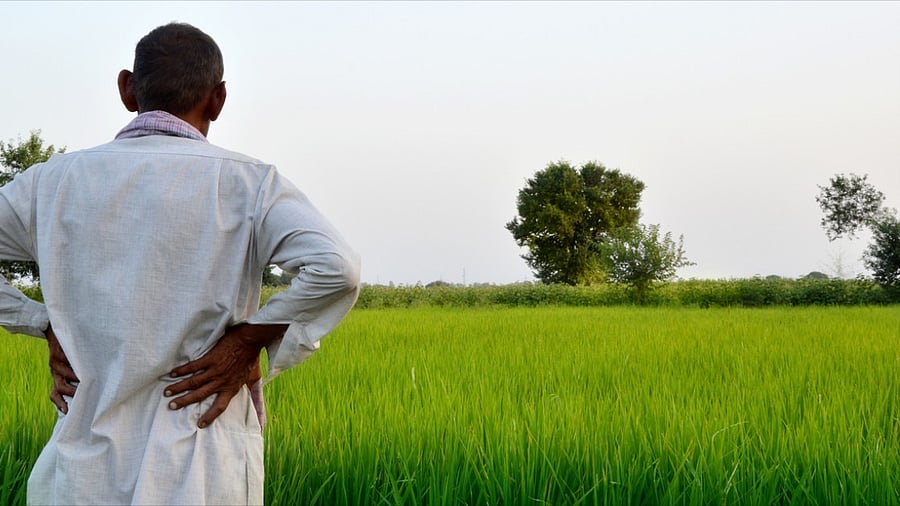
Representative image of a farmer looking at the farm land.
Credit: iStock
Bengaluru: The high court has said that section 95 (3) of the Karnataka Land Revenue Act empowers the Deputy Commissioner to refuse conversion of agricultural land if such conversion defeats the provisions of any existing law. Justice Sachin Shankar Magadum said this dismissing the petition filed by one Staney Herald D'Souza from Udupi.
There was a rival claim of tenancy for the land in question and in 2006 the high court had referred the matter to the Land Tribunal, Udupi. Subsequently, both the petitioner and the rival claimant, Martin Inthru D’Souza, filed a joint compromise petition before the Land Tribunal, Udupi and the same was recorded in 2012.
The petitioner contended that the 1981 order, which granted occupancy rights to his father, was restored through the compromise recorded in 2012. He filed an application before the Deputy Commissioner claiming that the restoration of 1981 order entitles him to apply for conversion of the lands.
In 2016, the DC rejected the application on the ground that there is no alienation clause in the order granting occupancy rights and the same would get defeated if the lands are permitted to be converted.
Justice Sachin Shankar Magadum noted that the petitioner has not placed on record Form No. 10, which is a statutory document of significance under the Karnataka Land Reforms Act. Form No.10 is particularly relevant in determining the commencement of the 15-year period during which alienation of the land is restricted, except for partition among the members of a joint family.
The court also said that the 2012 order stands as an independent grant based on the compromise entered into between the parties, and it cannot retrospectively validate or revive the 1981 order that was already set aside by the high court in 2006.
The court further said that in DLF Universal Limited case, the Apex Court has categorically held that permission for conversion must be granted by the DC only in accordance with Section 95 (3) of the Karnataka Land Revenue Act and that such permission may be refused in public interest.
“The power vested in the Deputy Commissioner under Section 95(3) is not merely procedural but substantive in nature, designed to safeguard the agricultural purpose and character of the land. This provision ensures that the objectives of the Karnataka Land Reforms Act Land Reforms Act, such as preventing fragmentation, restricting alienation, and promoting agricultural development, are not undermined through conversion. Therefore, the Deputy Commissioner is well within his statutory authority to examine whether a proposed conversion violates the provisions of the Land Reforms Act and to refuse permission if such violation is found,” the court said.